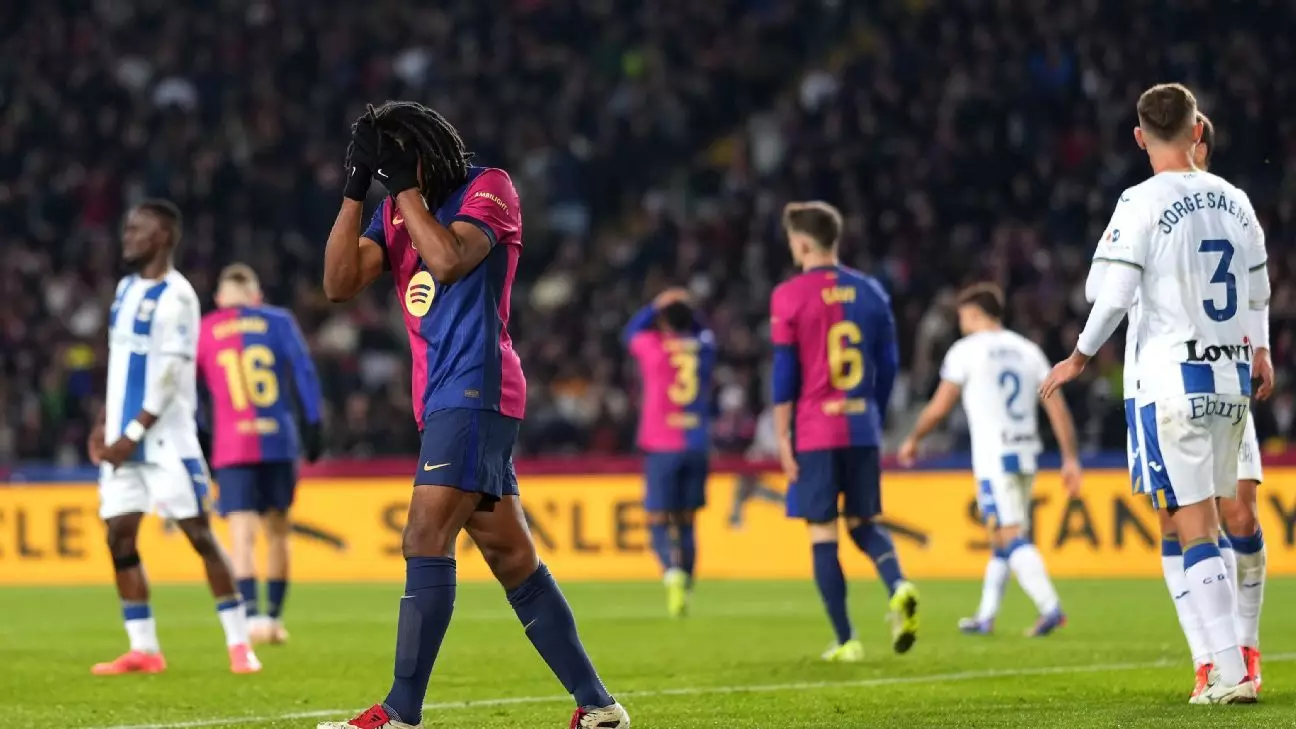The football landscape is often painted in contrasting shades of glory and hardship, with clubs navigating through the turbulent waters of success and crisis. FC Barcelona, currently positioned atop LaLiga and making strides in the Champions League, finds itself in a peculiar predicament—a crisis that, at first glance, seems entirely insensible. While many clubs would envy their standing, a deeper exploration reveals that beneath the veneer of success, significant issues threaten to undermine their season.
One cannot overlook Barcelona’s impressive statistics: a young prodigy in Lamine Yamal propelling the team forward, dominating performances in high-stakes matches, and a secure hold on next year’s Champions League prize money. However, the narrative of success does not tell the entire story. It is essential to interrogate the premise that a team is truly thriving when results appear favorable.
Barcelona’s high-flying start followed by a distinctly concerning downturn in form has unearthed a troubling inconsistency. The club’s recent losses to lesser opponents, such as a humbling 1-0 defeat against Leganés, raises alarms about the cohesive strength of the squad. Results alone, while certainly impressive, do not guarantee that a club possesses the character or tactical depth needed to maintain their course in a grueling season.
In the realm of football analysis, the term “resultadista” has become a derogatory label for those who judge a team’s worth solely by its results. This perspective is something that Barcelona should be wary of, particularly in light of recent performances. Upon dissecting the matches, one realizes that underneath the thrilling scorelines lies a fundamental disparity between form and results.
When viewing Barcelona’s situation holistically, it is evident that the team has encountered major tactical hurdles. Opponents have begun to delineate successful strategies to penetrate their defensive setups. The same high-risk approach that once defined Barcelona’s play style is now showing cracks, as evidenced by repeated defensive frailties.
An alarming trend has emerged since early November: Barcelona has yet to recover when succumbing to early deficits. Whether against top-tier opponents or mid-table sides, their inability to respond when trailing indicates a lack of depth in character and strategy. This inability to rebound raises questions regarding the team’s resilience—a key trait for champions.
As the season transitions, the tactical patterns within Barcelona’s play indicate a stagnation that no amount of star power can mask. The coaching strategies employed by Hansi Flick have come under fire, especially with a rigid rotation policy that sidelines rotational play. Fitness and sharpness, crucial in high-energy matches, appear diminished as players show signs of fatigue and complacency.
Additionally, star player Robert Lewandowski’s decline in match impact cannot be glossed over. While his early contributions helped mask the team’s ticking alarm, the lack of quality chances provided by his teammates has left him as an ineffective figure. As a result, the burden rests heavier on the younger players like Yamal, relying on minimal support. If this trend continues, it raises questions about the long-term sustainability of Barcelona’s offense.
As Barcelona prepares to face Atlético Madrid—an opponent that historically struggles to win at Camp Nou—the atmosphere is fraught with uncertainty. The stakes are primal; a loss would be not only damaging for points but also for morale. Moreover, with the potential absence of Yamal due to injury, the team faces a daunting task.
This match will not just dictate current standing but will also reflect the underlying tensions within the squad, especially with flick sidelined due to suspension. The need for strategic ingenuity has never been more pressing, and the outcome could reverberate through the club both mentally and materially.
The tumult surrounding FC Barcelona’s current state embodies the complexities of modern football. While results show a facade of success, the reality reveals a deeper, more troubling predicament. As the narrative unfolds, the definition of “crisis” continues to evolve, demanding a more nuanced understanding of what success entices and what it ultimately requires.

